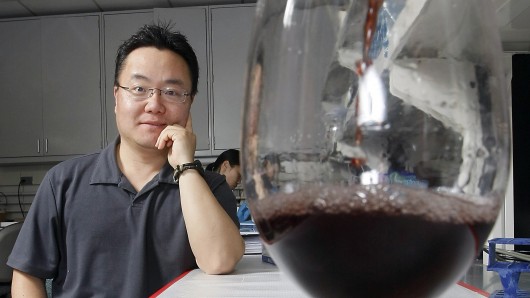Compound found in red wine could help fight obesity
18:20 April 9, 2012

Assistant professor Kee-Hong Kim from Purdue University is testing a compound that is commonly found in red wine for its ability to block the processes of fat cell development
Researchers from Purdue University in Indiana are testing a compound found in red wine that has the ability to block the processes of fat cell development. The research into the compound known as piceatannol may lead towards finding a simple method to combat obesity.
Piceatannol results from the conversion of resveratrol – a compound found in red wine, grapes and peanuts that is also thought to combat cancer, heart disease and neurodegenerative diseases. When resveratrol is converted into the piceatannol compound, which naturally occurs after consumption, the compound has the ability to delay fat cell growth.
"Piceatannol actually alters the timing of gene expressions, gene functions and insulin action during adipogenesis, the process in which early stage fat cells become mature fat cells," explains Kee-Hong Kim, an assistant professor of food science at Purdue University. "In the presence of piceatannol, you can see delay or complete inhibition of adipogenesis."
Young fat cells develop over a period of 10 days or more and go through several stages of development before becoming mature fat cells. The researchers are currently testing the effects of the piceatannol compound during the early stages of fat cell development before mature fat cells occur. "These precursor cells, even though they have not accumulated lipids, have the potential to become fat cells," Kim said. "We consider that adipogenesis is an important molecular target to delay or prevent fat cell accumulation and, hopefully, body fat mass gain."
The research found that piceatannol binds to insulin receptors of immature fat cells in the first stage of adipogenesis, blocking insulin's ability to control cell cycles and activate genes that carry out further stages of fat cell formation. In other words, piceatannol is able to block the immature fat cells from maturing and growing.
Professor Kim will now start testing the compound with an animal model of obesity and hopes to find a way to protect piceatannol from degrading in the bloodstream. "We need to work on improving the stability and solubility of piceatannol to create a biological effect," Kim said.
Kim explains the study in the video below.
Source: Purdue University
Copyright © gizmag 2003 - 2012 To subscribe or visit go to: http://www.gizmag.com